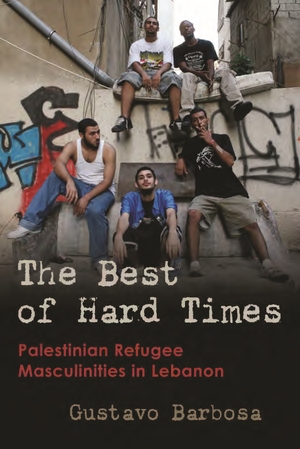"Border Humanitarians gives rich textured detail of the precarity and disposability of migrant life in the borderlands that get reproduced in the social settings away from the borderlands where the process of differentiation and othering of migrants is the order of society... A valuable addition to border studies and will be indispensable for scholars interested in understanding the intricacies of multi-layered borderlands."—Shubhanginee Singh, Journal of Borderland Studies
"Develops ethnographically-grounded insights into the conflicts, contradictions, and dilemmas humanitarian workers must confront in their work among dispossessed people, and the multiple and substantial challenges and vulnerabilities that constitute everyday life for migrants in Mae Sot."—Don Selby, Human Rights Quarterly
"Border Humanitarians is in timely dialogue with feminist studies of borders that have arisen in transnational and abolitionist feminist circles and will have continued relevance in adjacent studies of carceral feminism, humanitarianism, and border studies."—Journal of Asian Studies
"Border Humanitarians makes a major contribution to gender, diaspora and border studies, based on thorough research on the Thai-Burmese borderland. The book is thoroughly researched, analytically advanced and highly readable."—Kristian Stokke, University of Oslo
"Border Humanitarians is a nuanced and insightful analysis of migrants' lives in Mae Sot, Thailand. Exploring violence, precarity and ethical challenges of power and positionality, this is a highly recommended ethnographic study."—Kirsten Mcconnachie, University of East Anglia
Description
In rich ethnographic detail, Border Humanitarians explores the narratives of Burmese activists in exile who rely on transnational political and social networks to respond to gender violence among the hundreds of thousands of migrants living and working precariously on the Thai border with Myanmar. The activists this book follows must navigate a multiplicity of representations; they are simultaneously “illegal” in Thailand, underpaid feminized laborers in a global garment supply chain, and targets of global North humanitarian intervention with funding to “rescue” and “empower” them. Looking at how these multiple roles overlap, Saltsman asks how state border enforcement regimes, global humanitarianism, and neoliberal capitalist trajectories produce varied sets of constraints and opportunities in migrants’ lives. Here, like in many spaces that are simultaneously zones of refuge and hubs for flexible labor, the borderlands are both a site of dispossession for migrants as well as a resource for collective agency. As Saltsman details, gender itself emerges as an important tool for migrants and aid workers alike to navigate insecurity and assert varying ways of making order amidst the upheaval of displacement and ongoing exclusion.
About the Author
Adam P. Saltsman is assistant professor of urban studies and director of the Urban Action Institute at Worcester State University.
August 2022



